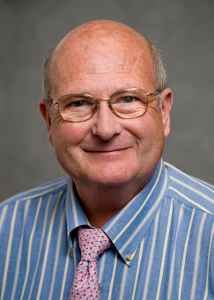Previous Noonan Award Recipients
Alireza Alizadeh, EG21
Alireza Alizadeh earned his PhD from Tufts University in Electrical and Computer Engineering in 2021, where he focused on wireless communications. He earned his Master’s degree in Electrical Engineering and Communication Systems from Ferdowsi University of Masshad, Iran in 2012. During his doctoral research at Tufts, he embarked on a comprehensive exploration of wireless communications, spanning 5G and beyond cellular networks, 3GPP standardization, software-defined radio, and machine learning. This extensive study proved invaluable to Alireza’s capacity as a Senior Cellular Protocol Engineer at Apple. Leveraging his expertise in these domains, he has made significant contributions to the development and enhancement of Apple's cellular products, ensuring seamless connectivity and optimal performance across diverse devices. His deep understanding of 3GPP standards, coupled with advanced techniques like game theory and machine learning, has been pivotal in navigating the complexities of evolving wireless landscapes. Additionally, Alireza’s proficiency in massive MIMO, precoding, and beamforming techniques has empowered him to innovate in testing cellular protocols and optimizing resource allocation. He says, “Overall, my doctoral work provided me with a solid foundation and practical skills that continue to fuel innovation and excellence in shaping the future of cellular communication technologies at Apple.”
Srijith Rajeev, EG22
Srijith Rajeev earned his PhD in Electrical and Computer Engineering from Tufts University in 2022, a Master's of Science degree in Electrical Engineering from the University of Texas at San Antonio (UTSA) in 2016, and a Bachelor of Engineering degree in Electronics and Communication from Visvesvaraya Technological University in 2014. As a student at Tufts, he served as a Graduate Research Assistant and Graduate Teaching Assistant. Currently, he holds the position of Research Assistant Professor in the Department of Electrical and Computer Engineering at Tufts University. Srijith's research focuses on developing novel multi-modal, multi-dimensional human visual intelligence-based systems at the intersection of Artificial Intelligence (AI), Computer Vision (CV), and human cognition. The algorithms he developed during his PhD have been applied to various fields, including fire-fighting, traffic monitoring, defense, and biometric security. He has published more than 15 research papers, filed three patent applications, and submitted two provisional patent filings. Srijith has also worked for two Tufts University-based startups: Tessera Intelligence, an AI-based traffic analytics company, and SeaDeep, an AI-based underwater monitoring company. In fact, he co-founded Tessera Intelligence in March 2022 and was one of the first employees of SeaDeep.
Margaret Stevens, EG18, EG20
Margaret Stevens earned her PhD in Electrical Engineering and Materials Science and Engineering while working with Professor and Chair Tom Vandervelde. Maggie has a BA from Mount Holyoke College in Physics and an MS in Electrical Engineering from Tufts. While at Tufts, she was a NASA Space Technology Research Fellow, a NSF Future Leaders in Engineering Fellow, a Robyn Gittleman Teaching Fellow, and served on the Experimental College’s Faculty Board. For her dissertation, she epitaxially grew semiconducting alloys for space power devices. Her work resulted in numerous journal publications, conference presentations, and a "Best Student Presentation" award at the 33rd North American Molecular Beam Epitaxy (NAMBE) Conference for her presentation "Determining indium surface diffusion parameters on InGaAs/InP by employing droplet epitaxy." In 2020, Maggie joined the U.S. Naval Research Laboratory as a National Research Council Postdoctoral Fellow, where she is developing high efficiency solar cells and infrared light emitters for optogenetics and neurophotonics applications.
Qianwen Wan, EG15, EG19
Qianwen Wan received her BS in Information Engineering from Wuhan University of Technology, a BS in Law from Wuhan University, and her MS and PhD in Electrical and Computer Engineering from Tufts University. She was a principal research assistant in Professor and Dean of Graduate Education Karen Panetta’s Vision and Sensing Systems Laboratory. Qianwen's research interests include designing automated tools for cognitive scientists, analyzing mobile eye tracking data, facial recognition, image and video processing, and machine-learning applications. In 2020, Qianwen accepted a full-time position as an ADS Development Engineer at Audi.
Chenguang Xi, EG13, EG17
Chenguang Xi joined Facebook in 2017 as a research scientist in the Applied Machine Learning (AML) division, which powers major Facebook products such as Ads, Feed, Instagram, and Search via innovations in ML and AI. He is dedicated to the company mission of building cutting-edge AI technologies to connect people to the right information, people, and communities.
Chenguang received his PhD in 2016 from the Department of Electrical and Computer Engineering at Tufts University under the guidance of his faculty mentor, Associate Professor Usman Khan. Chenguang's research spanned optimization, signal processing, and machine learning. His focus is studying the mathematical models and algorithms behind problems that arise in the analysis and optimization of large-scale distributed systems.
Born in Shanghai, Chenguang earned his BSc degree in Microelectronics from Shanghai JiaoTong University in 2010 and his MS degree in Electrical and Computer Engineering from Tufts University in 2013.
Corey Shemelya, EG10, EG13
In 2018, Corey Shemelya was named Assistant Professor at the University of Massachusetts Lowell, working in the Raytheon UMass Lowell Research Institute (RURI) and the Print3ed Electronics Research Collaborative (PERC). He was previously a research assistant professor and intelligence community postdoctoral fellow in the Department of Electrical Engineering at University of Texas at El Paso and the W. M. Keck Center for 3D Innovation. His research interests include metamaterials, infrared devices, nano-photonics, and sustainability.
Corey earned his PhD in Electrical Engineering as a Greenough Endowed Fellow while working with Professor Tom Vandervelde in the Renewable Energy and Applied Photonics Laboratories at Tufts University. His work has resulted in numerous publications and conference presentations. He was named the Edmond Optics Super Hero in 2012 and received a Dow Sustainability Award.
